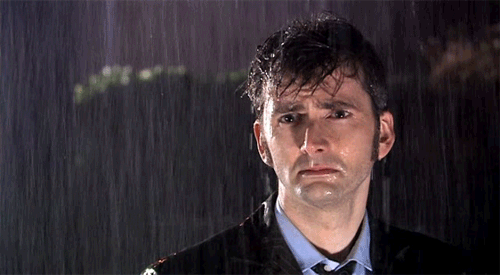A levels just learning to pass exams?
Do you think that a lot of education especially coursework which I hated is just basically learning to pass exams and eventually becomes so tiresome having to do constant modules etc of you mess one up it ruins the whole thing and is to me just intolerable on its tedious and incredible nature. Agree/disagree
The sciences are becoming a lot more like this. For example there are some people in my class who do not understand some of the topics at all, but know what to write when that question turns up, which really saddens me because the education system is no longer testing our aptitude and ability for a subject but rather how good we are at jumping, when told to jump.


You might find it changes after A-levels. There were some straight A students on my course who wilted under the 'pressure' created by a lack of directed learning at uni. By the end of the course they seemed a bit dense where at the start I had naively assumed they must be incredibly smart.
Posted from TSR Mobile
Posted from TSR Mobile
Yea, this is true
Exams are an extremely flawed way of measuring intelligence
I detest the idea of rote learning and will never do it
I am relying on my own creativity for my success in this life, I don't want to have to rote learn.
All the potential geniuses of society are being destroyed by our current education system, it's really sad.
Why teach people to think inside the box? Imagination will take us further that knowledge ever will.
As my hero, Albert Einstein said: "The only thing that held back my learning was my education"
Exams are an extremely flawed way of measuring intelligence
I detest the idea of rote learning and will never do it
I am relying on my own creativity for my success in this life, I don't want to have to rote learn.
All the potential geniuses of society are being destroyed by our current education system, it's really sad.
Why teach people to think inside the box? Imagination will take us further that knowledge ever will.
As my hero, Albert Einstein said: "The only thing that held back my learning was my education"

Original post by upthegunners
I detest the idea of rote learning and will never do it
I am relying on my own creativity for my success in this life, I don't want to have to rote learn.
I detest the idea of rote learning and will never do it
I am relying on my own creativity for my success in this life, I don't want to have to rote learn.
Rote learning is important in some careers, though of course critical thinking / problem solving / communication etc. are important as well. For example, I am a vet students and if I am treating a patient, it helps if I can remember a common list of drugs and dosages, or what symptoms are the likely cause of a disease. There are all factual data which I will need to know once I graduate as a vet, so I'd say rote learning does have some place.
Even in arts subjects, you can be as creative as you like, but you are likely need to need contacts to get into certain arts/media industries. Creativity alone won't get you everywhere in life.
In some way, yes it's learning how to pass exams, and this will depend what A Levels you do. I did AS ICT & Spanish and A2s of triple sciences + maths. However, when I did AQA biology, it was frustrating when exam structures changed from being based on facts we learned, to an analysis of multiple field trials and experiments whereby you didn't need to know many facts but mainly come up with an answers by intuition - which was the other side of the extreme and not very good either.
At University this changes drastically, so although A levels aren't perfect they do reflect an ability to learn, retain information, revise and cope with sitting exams, and can be a useful stepping stone to getting into University.
Original post by Muppet Science
The sciences are becoming a lot more like this. For example there are some people in my class who do not understand some of the topics at all, but know what to write when that question turns up, which really saddens me because the education system is no longer testing our aptitude and ability for a subject but rather how good we are at jumping, when told to jump.
Very well put.
Original post by Muppet Science
The sciences are becoming a lot more like this. For example there are some people in my class who do not understand some of the topics at all, but know what to write when that question turns up, which really saddens me because the education system is no longer testing our aptitude and ability for a subject but rather how good we are at jumping, when told to jump.


Yup that's me. But then again with sciences, its more about learning the exam. In my opinion, someone with basic knowledge to do the maths questions, and remember the long answer questions then you can easily achieve an A. A* is where is the pupils with actual knowledge score.
Allowing resits is also pretty bad, hence I actually agree with reducing resit opportunities. I mean allowing someone to take the same exam multiple times, obviously they'll do better and doesn't actually show true understanding.
I'm doing dentistry and a lot of A-level biology and chemistry has been taken as given knowledge.
I can't really see another method of learning other than rote learning. What are you going to do, take chemistry at A-level, go into the class and be told 'Oh, we don't teach you things, rote learning is bad. Find things out for yourself' and off you go to discover single-handedly things that took groups of scientists years to find out?
I am sorry but a much quicker way than that is to just get everything you need to learn into one book, learn it, then show how much you have learnt in an exam - oh look I am describing the current education system. :P
I am open to better suggestions.
I can't really see another method of learning other than rote learning. What are you going to do, take chemistry at A-level, go into the class and be told 'Oh, we don't teach you things, rote learning is bad. Find things out for yourself' and off you go to discover single-handedly things that took groups of scientists years to find out?
I am sorry but a much quicker way than that is to just get everything you need to learn into one book, learn it, then show how much you have learnt in an exam - oh look I am describing the current education system. :P
I am open to better suggestions.
In my school they are obsessed with exams! We spend the whole of our time working up to exams and when we do have them we start again. I understand exams are necessary but I think schools forget that education is more than sitting behind a desk listening to a teacher! In the end I think tests become more a test of your memory and how much you remember from what you revised instead of a test of knowledge.
Posted from TSR Mobile
Posted from TSR Mobile
Exactly, we learn for an exam and then forget about the information later. I think that exams were meant to test your knowledge and indicate progress whereas now many people just revise and revise for it, get a good mark, and then go on to forget it
Posted from TSR Mobile
Posted from TSR Mobile
I had to resit one of my exams a few weeks ago and when I was revising I could remember a few things already but most of the information was long forgotten. We base intelligence on memory, it's wrong and crap but I highly doubt it will change any time soon. Especially when every year the government accuse exams of getting easier, and so the exams are 'made harder'.. The amount of information I have to remember for my next exam is ridiculous.
Posted from TSR Mobile
Posted from TSR Mobile
My former (woman) teacher meant to me that there were situations at schools in which she thought as pupil that she had just learnt for the exams. And to be honest I have asked myself now and then whether I learn some issues just to pass the exams. Whenever I learn a new topic - no matter what the subject is -, I ask myself what the utility is and what it means in practice. But sometimes I have the impression that it get too theoretical to be real (keynesianism and neoliberalism in politics and economy for instance) and then I have reached a point on which I consider what the sense of learning is in terms of everyday life.
Quick Reply
Related discussions
- BTEC grades
- btec national diploma in early years
- Functional skills maths
- Does sixth form school matter?
- Required practicals chemistry A level
- University exams
- A level biology retake exam
- CeMAP
- Quick module question.
- Are there any colleges which offer intensive a-levels without high tuition fees?
- Studying Imperial MEng Chemical Engineering course
- I'm failing med school. How can I be a great student again?
- BTEC Applied science
- Concord College Entrance Exam
- Do I fail my apprenticeship if I didn't pass Maths and English?
- getting an A* in bio a level without learning ALL of the content?
- doing physics a level outside of school
- Why do people say that BTECs are **** easy?
- Should university grades be switched to a pass/fail system for all degrees?
- Oxbridge Home Learning
Latest
Trending
Last reply 1 day ago
Is it true that British unis are prejudiced towards degrees from Scottish unis?Last reply 1 day ago
If the Russell Group was now a fair representation of what it still claims to beLast reply 1 month ago
Is University of Birmingham prestigious and respected well enough in UK ?Trending
Last reply 1 day ago
Is it true that British unis are prejudiced towards degrees from Scottish unis?Last reply 1 day ago
If the Russell Group was now a fair representation of what it still claims to beLast reply 1 month ago
Is University of Birmingham prestigious and respected well enough in UK ?



